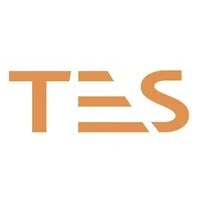AOD PO Points Operator
Initial / Recert
Course Summary
This course is designed to train persons who are responsible for undertaking this course as part of their duties on Network Rail Infrastructure.
It is designed to develop a person’s knowledge, understanding and skills and is therefore particularly suited to persons required to prove their capability in these areas.
Course Aim
The aim of this course is to provide delegates with the skills and underpinning knowledge required to undertake Points Operator duties.
Pre-requisites & Requirements
Additional Information
All PPE must meet the requirements of NR/L2/OHS/21 and RIS-3279-TOM and as a minimum be equipped with:-
High visibility upper body clothing with reflective tape, with Sentinel Sponsor Logo
High visibility lower body clothing with reflective tape
A safety helmet with Sentinel Sponsor Logo
Safety footwear to support ankle and protective toe cap
Suitable safety eyewear
Suitable safety gloves
What Does a Points Operator Do?
The Points Operator is a specialist role focused on the safe and correct operation of railway points (also known as switches in some regions). Points are crucial components of the track that allow trains to move from one line to another, enter sidings, or change directions. The Points Operator ensures these vital pieces of infrastructure are correctly set and secured for the passage of trains or on-track plant.
What is a Points Operator?
A Points Operator is a trained and competent individual authorised to manually operate and secure railway points. While many points are operated remotely by Signallers, during engineering works, signalling failures, or in yards/sidings without remote control, a Points Operator is essential for physically changing the route of trains or rail-mounted machinery. Their precision and vigilance are paramount to preventing derailments and ensuring safe movements.
Key Duties and Responsibilities of a Points Operator:
The role of a Points Operator demands a clear understanding of railway mechanics, strict adherence to procedures, and excellent communication. Their duties typically include:
Receiving Instructions: Taking clear and unambiguous instructions from the Signaller, COSS, PICOP, or other authorised personnel regarding which route needs to be set.
Operating Points Manually: Physically operating the points mechanism (often by hand levers or ground frames) to change the alignment of the rails.
Securing Points: Ensuring the points are correctly "set and detected" and then securely clipped and padlocked in position before any train or on-track machine moves over them. This is crucial to prevent accidental movement.
Visual Confirmation: Visually checking the points to confirm they are correctly set for the intended movement and that no obstructions are present.
Communicating Status: Clearly reporting the status of the points ("set and secured") back to the instructing person.
Maintaining Vigilance: Monitoring the points area during movements to ensure no issues arise.
Fault Reporting: Immediately reporting any defects or issues with the points mechanism.
Where a Points Operator can work within TES:
The Points Operator competency is vital for TES projects where track configuration changes are required on site, or where work is being conducted in areas with manual points:
Permanent Way (P-Way): Frequently involved in track renewal, maintenance, or repair works where sections of track need to be isolated or material/engineering trains need to be shunted into specific sidings.
Possession Management: A key role within large possessions, coordinating the movement of multiple on-track machines and trains within a controlled work area.
Electrification (OLE / 3rd Rail): Supporting works that require specific access or isolation of lines via points.
Depots & Sidings: Operating points within non-signalled or manually controlled depot and siding areas to move equipment and rolling stock.
Technical Services: Assisting with testing or commissioning of signalling interlocking related to points.
Let’s Learn Together
Interested in our NSAR Gold Standard team training your staff?
Fill out some info and we will be in touch shortly!
We can't wait to hear from you!
Explore more of TES
Want to explore more of what TES have to offer? Use the search function below

